Nitric Oxide Vs. Pre-Workout: Which Supplement is Best?
Author:
Reviewed by:
(Certified Nutritionist, S&C specialist, M.Sc.Eng. Biotechnology)
Unlock your full potential by engaging with our experts and community! Have questions about your fitness journey or looking for expert advice on weightlifting techniques? Don’t hesitate — leave a comment below and Camila Parente Santos will provide a personalized answer and insights to help you reach your goals.
Torokhtiy is reader-supported. Some links are affiliate links, and we may earn a commission at no extra cost to you. See our disclosure page for details.
When comparing Nitric Oxide and Pre-Workout, it’s important to note that many pre-workouts contain nitric oxide-boosting ingredients. So, for most people, pre-workouts will provide all the benefits of NO-boosters, along with caffeine and other added ingredients.
As a result, we recommend high-quality pre-workouts over NO-boosters for most people.
Nitric Oxide Vs. Pre-Workout – Nitric Oxide supplements contain ingredients like L-Citrulline, and L-Arginine, designed to boost NO-production and improve performance. Pre-workouts often contain similar ingredients along with caffeine and other ergogenic aids. So, for most people, pre-workouts will be a much more complete supplement.
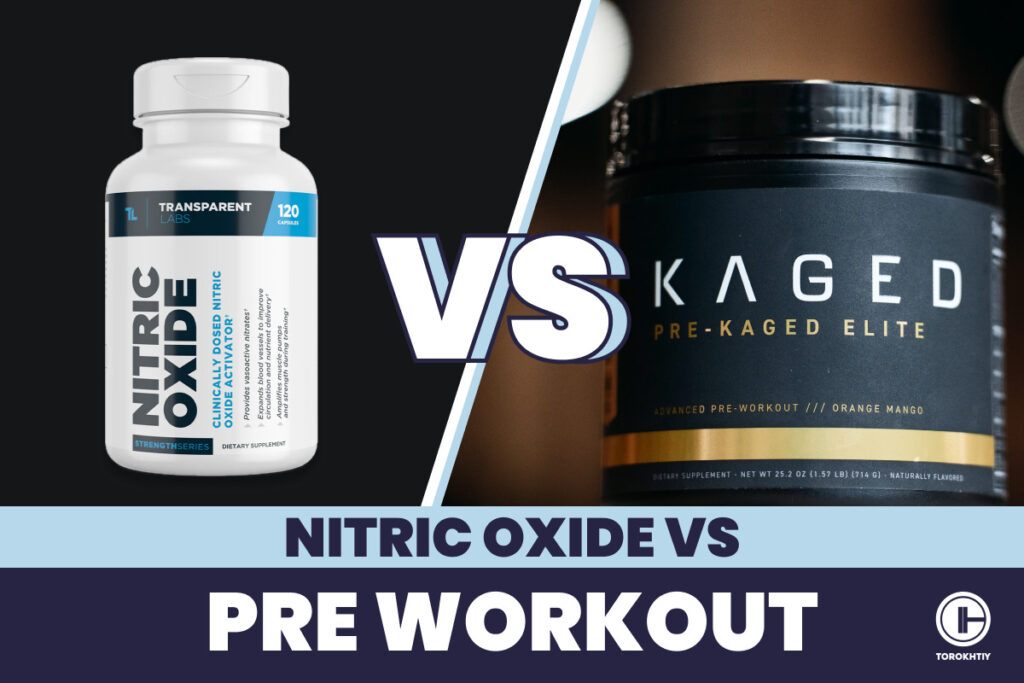
What is Nitric Oxide?
Nitric Oxide (commonly referred to as NO) is a compound that plays many roles in the bloodstream including vasodilation, which leads to increased blood flow and lower blood pressure. This increased blood flow likely improves exercise performance, which is why “Nitric Oxide- boosting” supplements have become so popular.
These supplements are meant to be used before your workouts to enhance pumps as well as overall performance.
The two main compounds used in these supplements to boost NO production are L-Arginine and L-Citrulline. Arginine’s effects on NO production and exercise performance are likely to be minimal at best, while L-Citrulline/Citrulline Malate is likely to produce a more significant effect in both these areas.
What is Pre-Workout?
Pre-workout is designed to produce similar effects to Nitric Oxide supplements, namely increased exercise performance. This goal is mainly accomplished through high doses of caffeine, as well as additional ingredients like Beta-Alanine, Betaine, and NO-boosters like L-Citrulline.
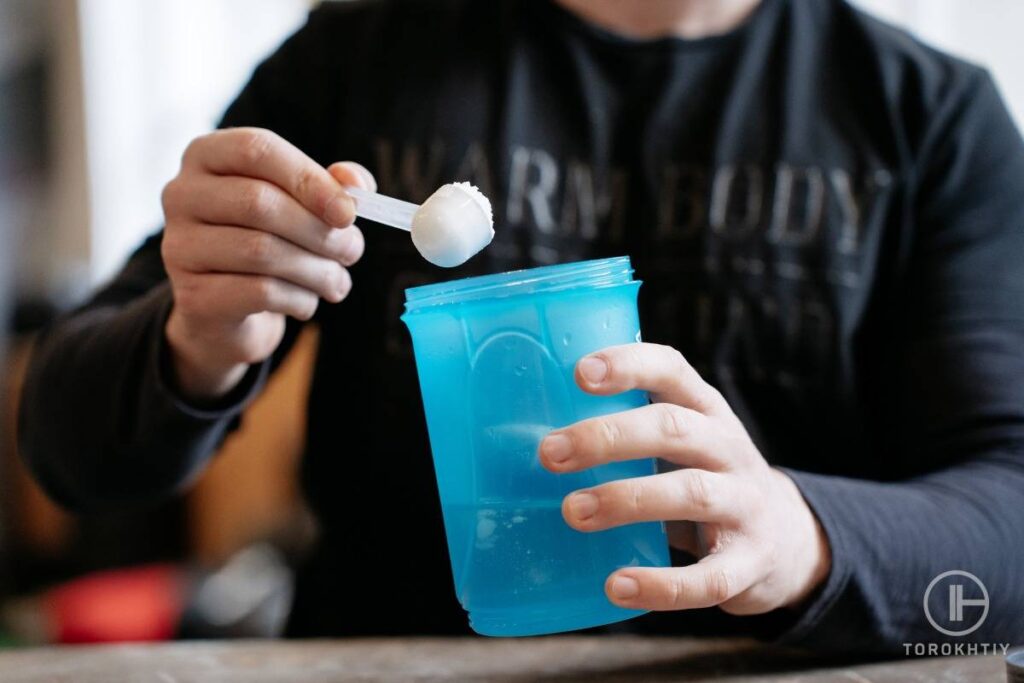
As a whole, a high-quality pre-workout supplement will likely produce a much more significant effect on exercise performance when compared to NO-boosters. This is because pre-workouts include many of the benefits of NO-boosters, along with other additional ingredients.
So, if you’re interested in NO-boosters, we recommend going for a Pre-Workout with Nitric Oxide-boosting ingredients instead.
Nitric Oxide vs Pre-Workout
Below we’ll be taking a closer look at the ingredients commonly included in both NO-boosters and Pre-Workouts so you can make a more informed decision when buying a supplement.
| NO-Boosters | Pre-Workout | |
|---|---|---|
| Common Ingredients | – L-Arginine – L-Citrulline – Nitrates (Beetroot juice/Extract) | – Caffeine – Betaine – Beta-Alanine – L-Citrulline |
| Stimulation | Typically stim-free | – Typically 100-300mg of caffeine/serving – Stim-free pre-workouts available |
| Taste/Flavor | The flavor of NO-Boosters and Pre-Workouts will typically be similar | |
| Value for Money | Pre-workouts likely provide better value for more complete formulas | |
1. Ingredient Breakdown
First, we’ll be taking a look at the most common ingredients found in NO-boosters, L-Arginine, and L-Citrulline, although these are often included in pre-workouts as well. We’ll also be looking at Caffeine, Betaine, and Beta-Alanine, which are some of the most common and effective pre-workout ingredients.
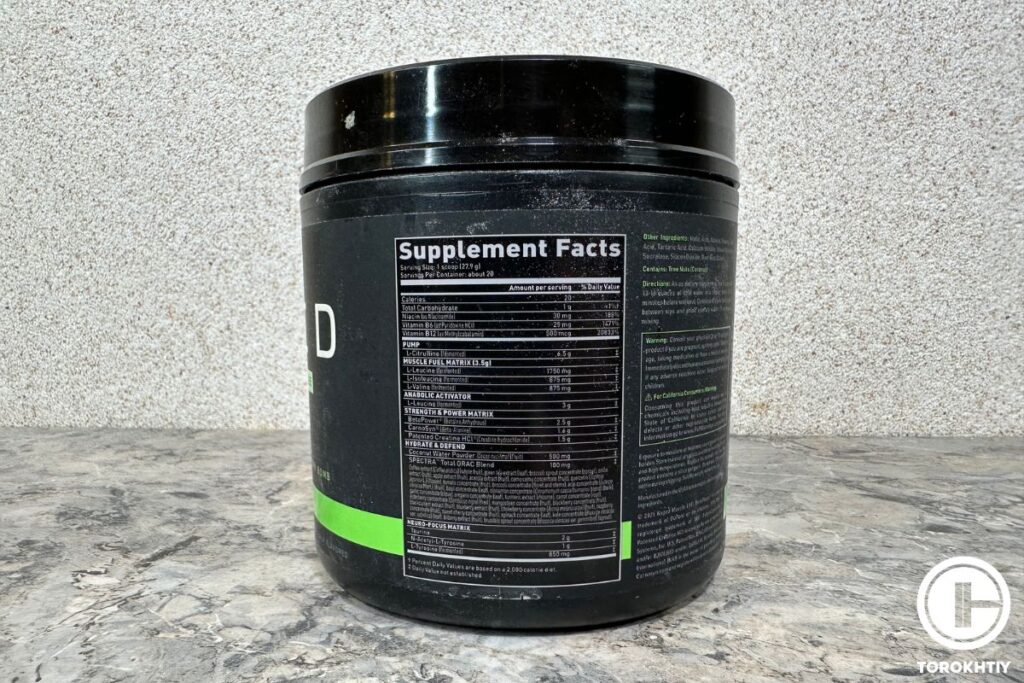
• L-Arginine
First is L-Arginine, which has been shown to have minor benefits for exercise performance when taken at high doses. However, most NO-supplements don’t contain high enough amounts of L-Arginine to produce any effects. High doses will likely also cause gastrointestinal discomfort anyways.
This is why we generally don’t recommend the use of L-Arginine as a sports supplement.
Overall, L-Citrulline has more evidence supporting its use as a sports supplement. L-Arginine tends to get eliminated by bacteria and different enzymes before it reaches the bloodstream. Meanwhile, L-Citrulline is likely much more effective at actually raising plasma levels of L-Arginine, which then leads to increased NO production.
• L-Citrulline
L-Citrulline on the other hand, is likely the most effective NO boosting ingredient available. 6-8g of Citrulline Malate or 4-5g of L-Citrulline will likely lead to improved exercise performance. We recommend taking a slightly higher daily dose of 9-15g of Citrulline Malate or 6-10g of L-Citrulline for optimal effects on recovery and endurance performance.
Keep in mind that while you can take L-Citrulline in NO-booster supplements, most effective pre-workout supplements will contain Citrulline as well. Overall, we recommend prioritizing L-Citrulline if you’re looking to get the benefits of increased nitric oxide production from your pre-workout supplement.
• Caffeine
Caffeine is the main ingredient in most pre-workout supplements and is an ergogenic aid because of its energy-boosting effects.
While the dose will depend on factors like age and body weight, for most people, something around 200mg of caffeine should do the work. You may want to go milder if you’re more sensitive to caffeine, or stronger if you have a higher tolerance.
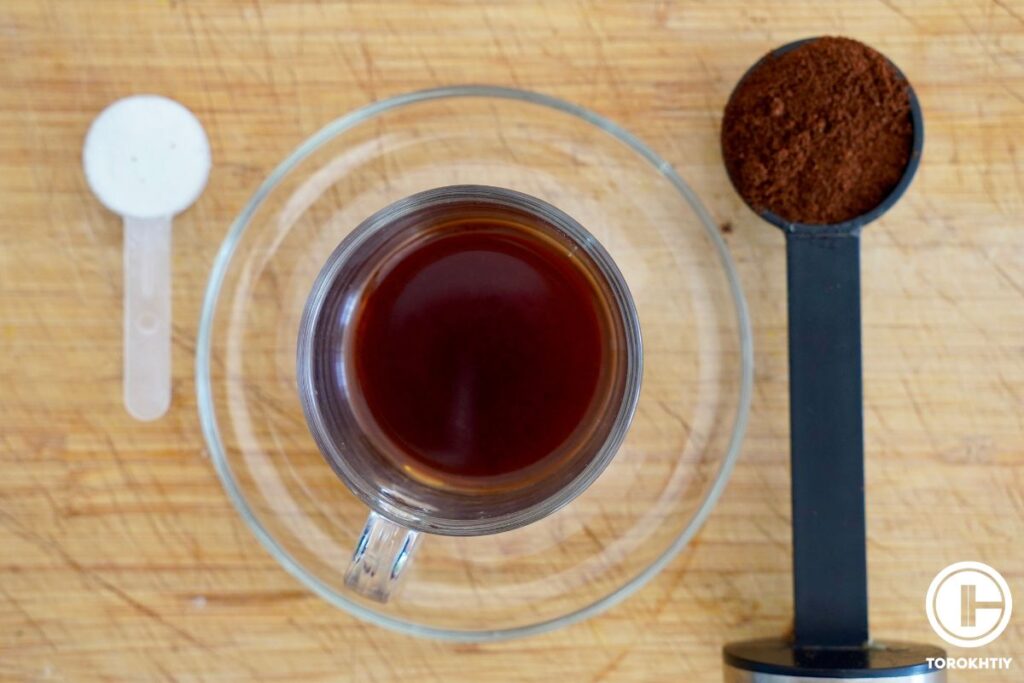
We don’t recommend exceeding 400mg of caffeine a day and limiting your intake within several hours before bed to prevent side effects like headaches, jitters, and insomnia.
• Betaine
Betaine is mainly used to increase force production and endurance performance. Keep in mind that it needs to be taken daily to produce meaningful effects, so it may not be the most beneficial pre-workout ingredient. We recommend at least 1.25g-2.5g of betaine daily.
• Beta-Alanine
Finally, Beta-Alanine is an ingredient mainly used to reduce fatigue. Similar to Betaine, it needs to be taken daily, so it may not be super beneficial if you’re not taking it every day. 3-6g/day is likely enough for most people to notice significant effects.
2. Stimulation
Most NO-boosting supplements contain no caffeine and will be completely stim-free. While there are some stim-free pre-workout supplements available, most will contain somewhere between 100-300mg of caffeine per serving.
3. Taste/Flavor
The taste of NO-boosters and pre-workouts largely comes down to additional sweeteners and flavors added to the formula. As a result, most of these supplements taste fairly similar, although there may be some differences depending on what brand you choose.
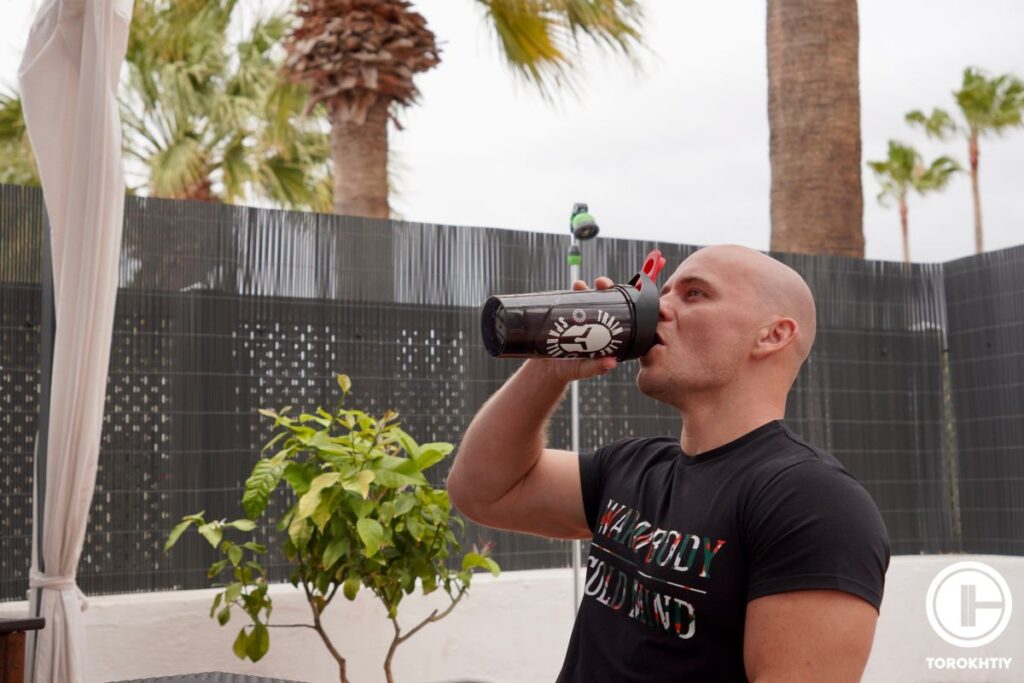
4. Value for Money
In our opinion, because pre-workout supplements offer much more significant effects, they offer much better value for money as well. Especially considering that many pre-workouts contain the NO-boosting ingredient, L-Citrulline, they’re just a better all-around choice.
Nitric Oxide vs Pre-Workout: Summary
Overall, a high-quality pre-workout supplement will be more effective than a NO-booster in almost every case. Pre-workouts will provide all the same benefits as an NO-booster along with the bonus of caffeine and additional active ingredients.
Positives:
Could be better:
Pros/Cons of Pre-Workout
Positives:
Could be better:
Transparent Labs Pump
- Form: Powder
- Best for: High-Intensity Exercise Performance, Training Volume, Enhanced “Pumping” Effect
- Flavor: Blue Raspberry, Strawberry Lemonade
- Caffeine: 0mg
- Special Ingredients: Citrulline Malate, Betaine
- Package Size: 1.31lbs
- Serving: 19.8g
- Price Per Serving: ~$1.67
- Company Founded: 2012
- Recommended by Athletes: Hafthor Bjornsson, Paul Sklar, Sean Harris
If you do want a high-quality NO-booster supplement, we recommend going with Transparent Labs Pump.
The main ingredient here is L-Citrulline, dosed effectively at 8g per serving, which should produce significant effects. Although you can also expect Arginine Nitrate and L-Glutamine, it’s unlikely either of these ingredients will have a major effect on performance. This supplement does however contain a solid 2.5g dose of Beta-Alanine.
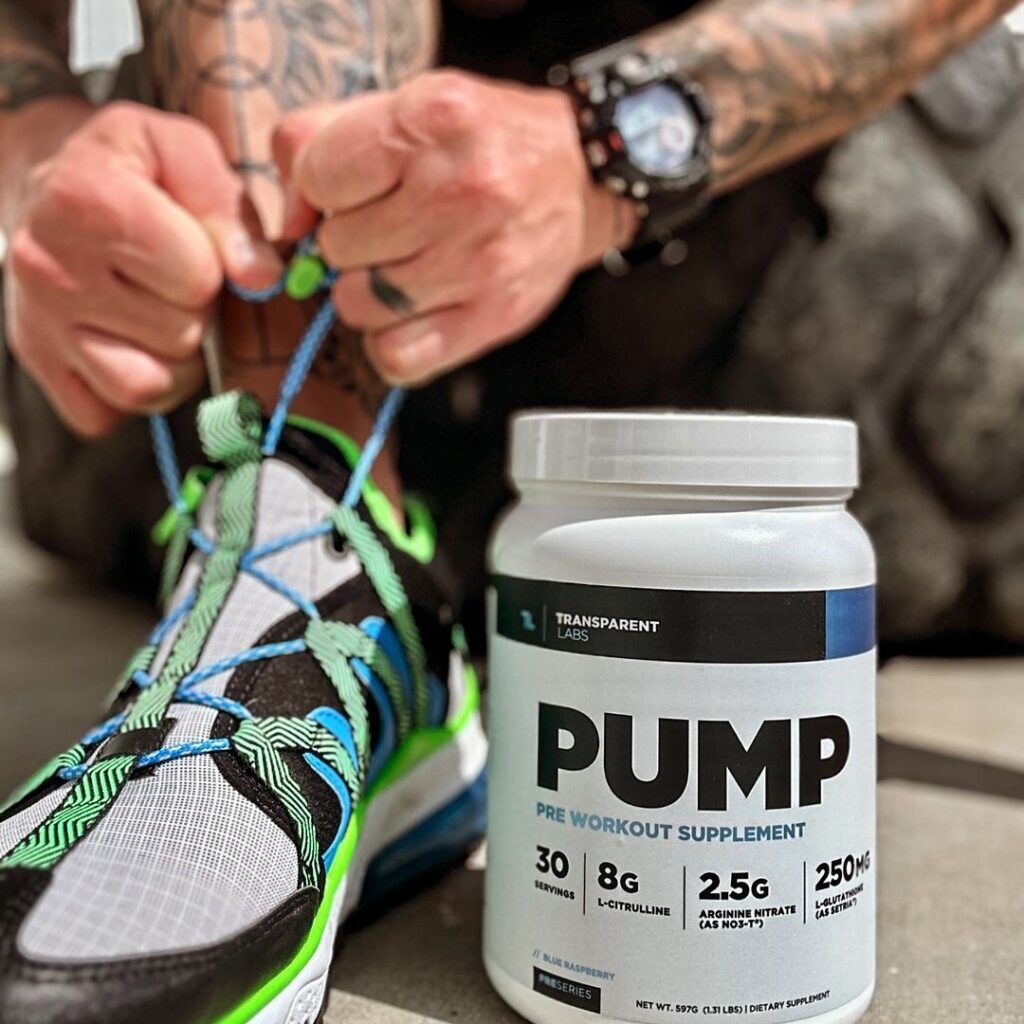
At ~$1.67 per serving, this is a fairly affordable supplement, with a decent formula. However, you’re likely still better off spending slightly more on a high-quality pre-workout supplement instead.
Pre-Kaged Pre-Workout
- Form: Powder
- Best For: Overall Exercise Performance, High-Intensity Exercise Performance, Muscular Endurance, Reducing Fatigue, Training Volume, Enhanced “Pumping” Effect
- Flavors: Pink Lemonade, Fruit Punch, Krisp Apple, Grape, Orange Crush, Cherry Bomb, Berry Blast
- Caffeine: 274 mg per serving
- Special Ingredients: Creatine, Beta-Alanine, L-Citrulline, Betaine, BCAA
- Package Information: 20 servings per container
- Serving: 27.9-29.6 g (per scoop)
- Company Founded: 2014
- Recommended by Athletes: Michael Wittig, Jessica Madison, Tawna McCoy
For a high-quality pre-workout formula, we recommend Pre-Kaged.
In this formula, you can expect a solid 274mg of caffeine, which is fairly strong. In terms of active ingredients, you’ll also be getting 6.5g of L-Citrulline, 2.5g of Betaine, and 1.6g of Beta-Alanine. It’s worth noting there’s also 1.5g of Creatine HCl, which is less ideal than Creatine Monohydrate, all will not be an effective dose to produce, even with daily use.
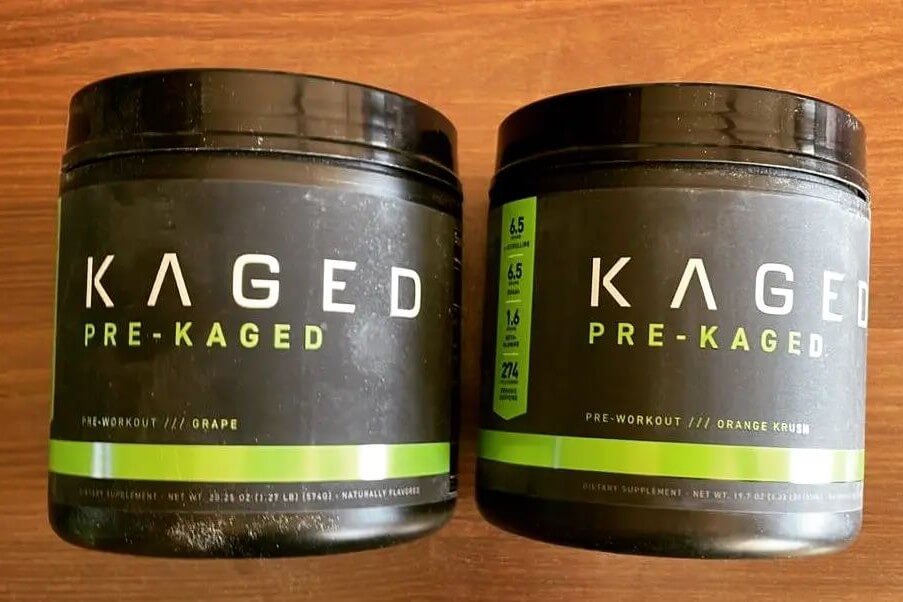
At ~$2.25 per serving, this is more expensive than Transparent Labs Pump, although it will likely produce much more notable effects, making it well worth the money in our opinion!
FAQ
Is Nitric Oxide a Pre-Workout?
NO-boosters are commonly marketed as pre-workout supplements, although they do not have the caffeine included in most standard pre-workout formulas. The inclusion of caffeine along with active ingredients typically makes pre-workouts more complete supplements.
Should You Take Nitric Oxide Before or After a Workout?
If you’re looking to take a Nitric Oxide booster, we recommend taking it around an hour before your workout to maximize the effects of ingredients like L-Citrulline.
Can You Take Nitric Oxide With Pre-Workout?
Yes, especially if the supplements have different ingredients, or the doses would only be effective together, it may be beneficial to take NO-boosters and pre-workouts together. Taking NO-boosters along with pre-workout may be a good way to get more effective doses of ingredients like L-Citrulline, Betaine, and Beta-Alanine, without also taking an excessive amount of caffeine.
However, if you have a high-quality pre-workout supplement with effective doses of all the active ingredients you’re looking for, taking an NO-booster alongside pre-workout is likely pointless.
Conclusion
Overall, Pre-workouts are likely more effective and complete supplements for boosting performance when compared with NO-boosters. As a result, most people will be better off just taking a high-quality pre-workout.
With this being said, if you want a solid NO-booster, check out Transparent Labs Pump. For a great pre-workout, consider giving Pre-Kaged a try instead.
Have you ever tried NO-boosters or pre-workout? Let us know your thoughts in the comments below!
Also Read:
- Energy Drink Before Workout
- Pre-Workout vs Fat Burner: Unpacking the Differences
- Pre-Workout vs Post-Workout: Everything You Need To Know
- G Fuel vs Pre-Workout: Battle of the Energy Boosters
- Does Pre-Workout Break a Fast? (All You Need to Know)
- What Is DMAA Pre-Workout?
References:
- Amy Richter RD, et. al “5 Ways Nitric Oxide Supplements Boost Your Health and Performance,” Healthline, https://www.healthline.com/nutrition/nitric-oxide-supplements#TOC_TITLE_HDR_5 (Accessed May 13, 2024)
- Aitor Viribay, et. al, “Effects of Arginine Supplementation on Athletic Performance Based on Energy Metabolism: A Systematic Review and Meta-Analysis” Nutrients, 12(5), 1300; (2020).
- Fredrik Tonstad Varvik, et. al, “Acute Effect of Citrulline Malate on Repetition Performance During Strength Training: A Systematic Review and Meta-Analysis” Int J Sport Nutr Exerc Metab. Jul 1;31(4):350-358. (2021).
- Gabriel Loureiro Martins, et. al, “Caffeine and Exercise Performance: Possible Directions for Definitive Findings,” Front Sports Act Living.; 2: 574854. (2020).
- Apicella, Jenna M., “The Effect of Betaine Supplementation on Performance and Muscle Mechanisms” Master’s Theses. 109 (2011).
- Julie Y. Culbertson, “Effects of Beta-Alanine on Muscle Carnosine and Exercise Performance:A Review of the Current Literature” Nutrients. Jan; 2(1): 75–98. (2010).
- Photos made by Torokhtiy Media Team.
Why Trust Us?
With over 20 years in Olympic weightlifting, strength training, nutrition coaching, and general fitness our team does its best to provide the audience with ultimate support and meet the needs and requirements of advanced athletes and professional lifters, as well as people who strive to open new opportunities and develop their physical capabilities with us.
By trusting the recommendations of our certified experts in coaching, nutrition, and sports training programming, as well as scientific consultants, and physiotherapists, we provide you with thorough, well-considered, and scientifically proven content. All the information given in the articles concerning workout programming, separate exercises, and athletic performance, in general, is based on verified data.
The product testing process is described in more detail here.
Camila has worked as a Nutritionist for 7 years. In addition to being a nutritionist, she is an amateur weightlifting athlete for 2 years. Camila has experience at Flamengo’s football base and in a food supplement company and currently provides services at a clinic. At the moment she is coursing a postgraduate study in Sports Nutrition.
Reviewed by: Jacek Szymanowski
Certified Nutritionist,
M.Sc.Eng. Biotechnology
Performance architect,
Strength and Conditioning Specialist
With over 30 years of fighting experience, specialization in nutrition coaching for athletes, and expertise in metabolic health and dietary strategies, Jacek offers a comprehensive approach to optimizing your performance and well-being. Backed by a Master of Science degree in Biotechnology, Jacek remains at the forefront of scientific advancements, ensuring that his coaching is always evidence-based and up-to-date.




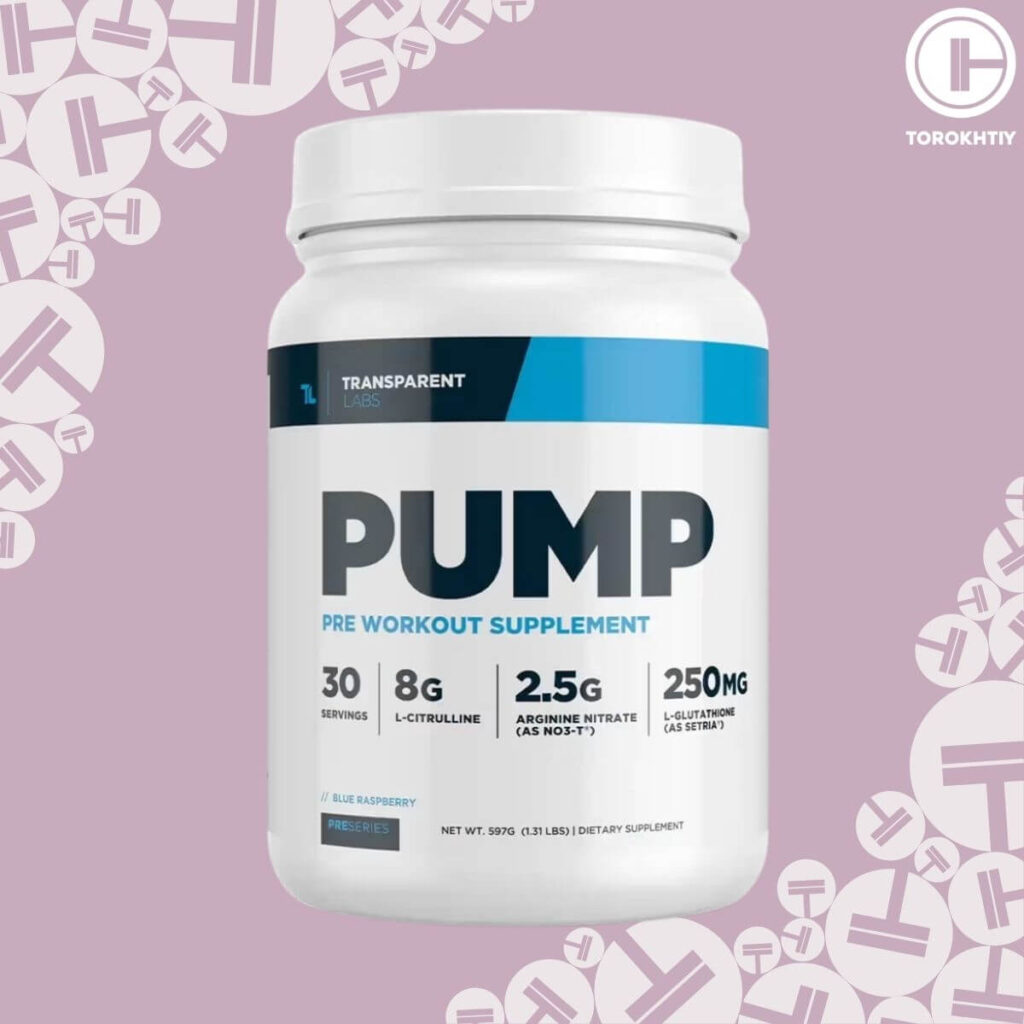
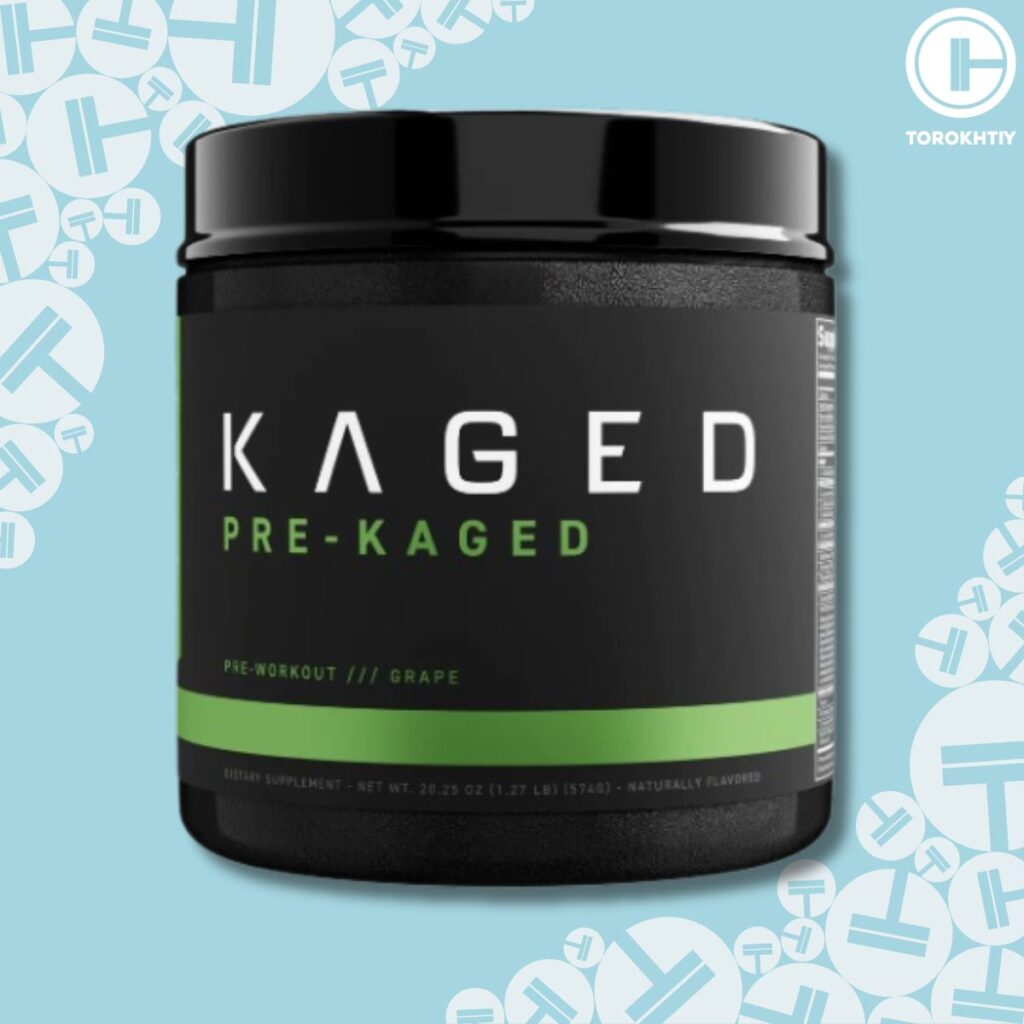
Still have questions after reading our article? Unlock your full potential by engaging with our experts and community! Don’t hesitate — leave a comment below and Camila Parente Santos will provide a personalized answer and insights to help you reach your goals.